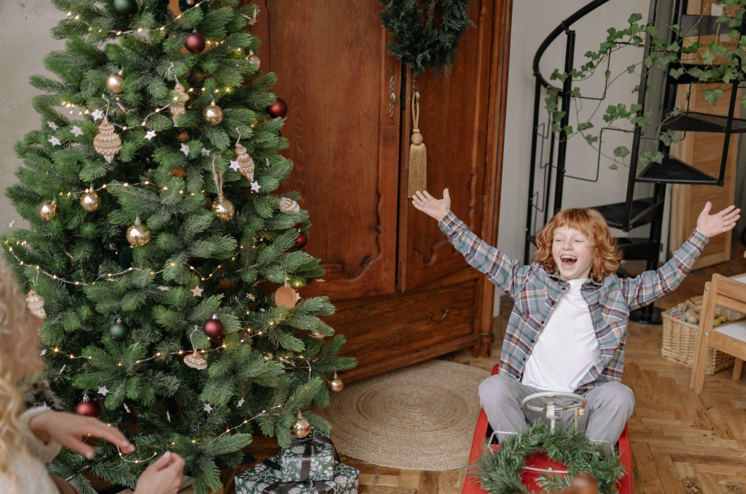
The True Meaning of Choosing Artificial Christmas Trees for Your Faith and Family
The Ultimate Christmas Tree Goals: Meaningful, Sustainable, and Affordable
Artificial Christmas trees have been growing in popularity over recent years, especially as more and more people begin to consider their impact on the environment. From the ease of assembly and storage to the vast array of sizes and styles, artificial trees offer a range of options for those looking for a holiday centerpiece that lasts beyond a single season. However, deeper reasons exist to consider an artificial tree, such as the sense of purpose, fulfillment, and joy it can bring to your faith and family.
The holidays are not just about the presents, the decorations, or the parties; they are about the people you share them with. For many families, choosing the perfect Christmas tree is a tradition that brings everyone together and creates cherished memories. By selecting an artificial tree, you can ensure that this shared experience continues year after year without compromising your beliefs or budget. From traditional to modern, from full to sparse, and from small to large, artificial trees offer a range of options that can fit any family’s needs and wants.
The Environmental Benefits of Choosing Artificial Christmas Trees
Sustainability has become a critical factor in choice-making, and choosing an artificial tree over a real one is undoubtedly a more environmentally conscious decision. According to the National Christmas Tree Association, approximately 25-30 million Christmas trees are sold in the United States each year, and most of them end up in landfills. By choosing an artificial tree, you are saving a tree from being cut down and reducing your carbon footprint. Additionally, by reusing the same tree every year, you are reducing waste and helping to preserve the environment.
Artificial trees are also better for your home’s indoor air quality since they do not shed needles or create the allergens that live trees can produce. Additionally, although the initial cost of an artificial tree may be higher, the long-term savings are substantial. Buying a real tree every year, which costs about $50-$100 or more, can quickly add up, whereas investing in an artificial tree that can last for a decade or longer makes sense in the long run.
In conclusion, choosing an artificial Christmas tree for your faith and family provides the traditional holiday centerpiece and many benefits that align with your goals, especially those of sustainability and affordability. By consciously purchasing an artificial tree, you can create a meaningful holiday tradition that honors your faith, brings your family together, and positively impacts the environment. May your holiday season be full of joy, peace, and love.
You May Also Like

The Perfect Outfit for Speed Dating with a Fake Christmas Tree and Crystal Christmas Ornaments
March 29, 2024
Your Holidays with Pre Lit Christmas Trees
October 16, 2024

